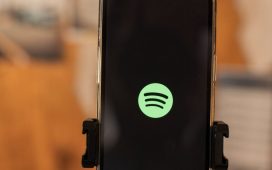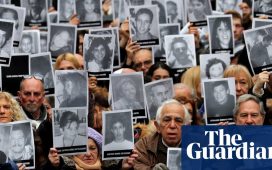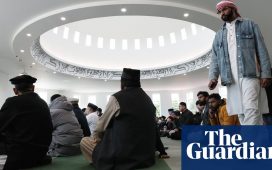as Daine, 49, from Sutton Coldfield, would normally spend Diwali visiting her mum and siblings, enjoying a meal together and a fireworks display. They would also visit the local Sikh temple to light a candle and pray, grateful for the release of Guru Hargobind from his Indian prison in 1619 – the reason why Sikhs celebrate Bandi Shor Divas (Prisoner Release Day) in November.
But this year, alongside the Hindu and Jain families who also celebrate the date, they are not able to leave the house, save for essential reasons such as work, buying food or exercising. Diwali has become the latest victim of the coronavirus lockdown. Following in the now well-trodden footsteps of Eid, Ramadan, Rosh Hashanah and others, the festival of lights is the latest religious holiday to fall victim to the unprecedented changes necessitated by the pandemic.
Instead Daine has decided to rally her neighbourhood – on the local Whatsapp group – and ask people to place tealight candles in their driveways. “I thought it would be a really good idea if we celebrated as a street, we have a really lovely community and have celebrated all sorts of things like Halloween and Remembrance Day, now Diwali,” she says.
The five-day spectacle – which this year began on 12 November and culminates in the main day of celebration on Saturday 14 – is normally characterised by togetherness, eating, games, gifts, spring cleaning, and lighting the home with candles or lamps. It symbolises the triumph of light over darkness and good over evil, but in a year that has categorically brought much hardship to Britain (50,000 dead and an economy in freefall), even Diwali’s promise of new beginnings has had to concede to the reality of the situation.
On 9 November, Boris Johnson issued a message of thanks to those forced to cancel plans, saying: “I want to thank you all for the amazing part you are playing in our battle against Covid-19”, and adding that “we will overcome this…just as Lord Rama and his wife Sita found their way home after the defeat of the demon king Ravana.”
But what are the 800,000 Hindus and 400,000 Sikhs across the UK planning to do instead at the weekend? Birmingham’s much-attended Festival of Light will be streamed online, and Sunday’s Soho Road festival is also cancelled. The famous Neasden Temple in west London, which celebrated its 25 year anniversary in August, has also had to close its doors.
Nayana Prakash and her family
(Nayana Prakash)
Nayana Prakash, 26, is unable to celebrate with her Hindu family this year as her parents live in Dubai and cannot travel. The family normally always starts the day of festivities with a pooja (a small religious ritual), before eating a big meal, plenty of Indian sweets and dressing up in a new wardrobe. “Having a party is a pretty typical way to celebrate and when I was growing up we would attend one or host one every year without fail,” she tells The Independent.
This year Prakash is celebrating with her housemates in Oxford by putting on a meal and firework display. “None of them are Indian or celebrate Diwali but it’s nice to be able to mark this day in some way,” she says. She is also considering going for a walk with one friend to share some Indian sweets her parents have posted from the Middle East.
We are aware we are breaking rules, we are just wanting to be discreet about it
She concedes it is “frustrating” that this one friend cannot come in the house as they don’t live together. “So much of it is about inviting someone into your home. It’s been such a rough year that it would have been amazing to throw a party,” she explains. “But I gave up on having a normal Diwali a long time ago. It simply isn’t a normal year.”
Tarun, 40, who lives in south east London with his wife and two children, normally celebrates with wider family too. They engage in group prayer before guests arrive and light diyas (candles) in each room of the house and outside, before drinking and eating together. “Usually Scotch with the uncles and fried unhealthy vegetarian food”, he says. The day is finished with fireworks.
This year Tarun’s family do still plan to have a small gathering of two households, but without the fireworks. “We are aware we are breaking rules, we are just wanting to be discreet about it…[but] the kids are disappointed about no fireworks,” he says. “It won’t be the same as normal though, which is a shame.”
Dipika Mummery, 38, from Manchester, would normally visit her family in Bolton and spend the day eating. “My favourite part of the feast is always an amazing deep fried sweet pastry called ghughra – I suppose they’re a sort of Indian mince pie, but even more calorific,” she says. They would then go to temple, say prayers and meet friends.
Dipika’s Diwali sweets from her mother
(Dipika)
This year though they’re planning a quiet one, alone. “I’ll observe Diwali at home and try to Zoom with my mum and brother at some point… it’ll feel really strange to not have that this year, in a time when a lot of us would really love to have something to celebrate.” But her spirits have been lifted by a care package from her mum filled with treats.
Even those who are planning to stick to the rules, like Prakash and Mummery, feel frustrated that it seems more emphasis is being placed on saving Christmas than other religious festivals. “It completely ignores the significance of festivals like Eid and Diwali and implies that even if you don’t celebrate Christmas, you should be doing your bit for people who do,” says Prakash.
It completely ignores the significance of festivals like Eid and Diwali
On Saturday, religious leaders, local councils and politicians will be hoping these frustrations do not lead to rule-breaking, and are continuing to encourage people to connect online instead. Raj Manvinder Singh Kang, from the Sikh Council, said: “This year things will be different to reflect the current Covid-19 guidelines. Gurdwaras have had to find alternative ways to ensure [the] community can still be connected so many have set up live stream programmes.”
And Diwali isn’t just off the table for people in England – in India health officials have warned the capital of Delhi could become a “super spreader event” if the public celebrates without restrictions. But that doesn’t make it any less disappointing for those waiting for lockdown to end here on 2 December, in the knowledge that Christmas might yet go ahead.
Whether or not Mr Johnson will avoid being the “Grinch who stole Christmas” is yet to be seen – but for millions of people across the UK, their special holidays, high days and feast days have already been taken away by coronavirus. Despite acknowledging the medical necessity behind the measures, people are learning to grin and bear the burden of sacrifice placed upon their community.






